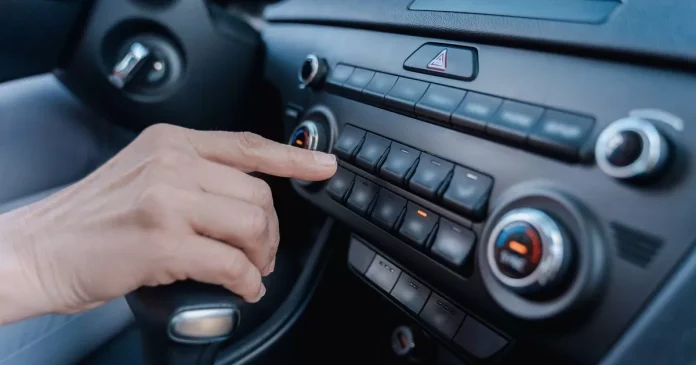Car owners could see significant cuts in their fuel costs by simply pushing a button that’s found in nearly every contemporary motor, CarShop specialists have revealed. Drivers nowadays benefit from an array of innovative tech in modern motors, including features that assist in conserving petrol.
The majority of new vehicles come with an “eco” or “economy” mode which works to lessen the demand on vital engine parts, resulting in better fuel economy. These handy tips arrive as drivers face steeply rising vehicle running costs, with charges for petrol and diesel reaching new heights in recent times.
Typically, the eco mode function is located on the dashboard or within the settings of the car’s infotainment system, reports the Express.
The experts at CarShop say: “Most modern cars are fitted with an ‘eco mode’ that reduces throttle responsiveness and engine power output, in turn using less fuel.
“For autos with automatic transmission, eco mode also prompts earlier gear shifts to maintain optimal efficiency based on engine load – by engaging this mode, you could trim your fuel usage by about five per cent.”
Activating Eco mode doesn’t compromise a vehicle’s velocity; however, it does dial back certain performance aspects to enhance fuel efficiency.
Motorists will observe a subdued response when accelerating since the throttle becomes less sensitive. The motoring aficionados at Progressive suggest that Eco mode is best used during more leisurely drives.
They emphasise that the feature is most suited for motorists cruising at speeds below 45mph, making it perfect for more relaxed commutes and urban driving.
Nevertheless, specialists caution against using this tool in certain circumstances, like merging into traffic or navigating complex routes.
BookMyGarage, a top site for comparing service and repair costs, highlighted that activating economy mode could “enhance vehicle’s fuel efficiency”.
They went further to suggest that drivers should actively switch off electrical devices when not needed. This includes components such as the car’s air conditioning, which is known to draw on fuel reserves.
According to data from RAC Fuel Watch, the benchmark for petrol and diesel prices in the UK, there’s been a steep increase in fuel rates recently.
Prices have surged by an average of 9p per litre with unleaded petrol costs rising from 140.45p per litre in January to 149.51p today.
At Reach and across our entities we and our partners use information collected through cookies and other identifiers from your device to improve experience on our site, analyse how it is used and to show personalised advertising. You can opt out of the sale or sharing of your data, at any time clicking the “Do Not Sell or Share my Data” button at the bottom of the webpage. Please note that your preferences are browser specific. Use of our website and any of our services represents your acceptance of the use of cookies and consent to the practices described in our Privacy Notice and Cookie Notice.

